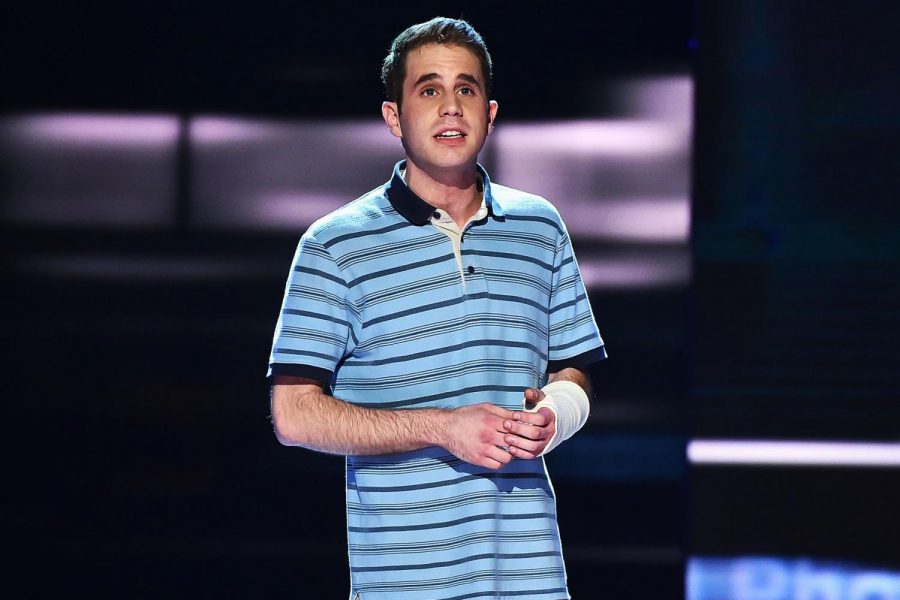Since film release of smash Broadway play Dear Evan Hansen, the argument continues over which version is better
The Broadway show Dear Evan Hansen, first staged in 2015 and winner of six of the nine Tony Awards for which it was nominated, finally hit the silver screen in September 2021. Dear Evan Hansen is based on a book written by Steven Levenson about a teen struggling with social anxiety and how he navigates his way through high school and brings joy to others. This true story has impacted the hearts of millions of people worldwide, and the debate continues as to whether or not the movie is better than the Broadway show.
According to the Barnes & Noble website, the premise of the book is that a letter that was never meant to be seen by anyone draws high school senior Evan Hansen into a family’s grief over the loss of their son. As a result, Hansen is given the chance of a lifetime: to belong. He just has to stick to a lie he never meant to tell: the notoriously troubled Connor Murphy was his secret best friend.
There are many differences between the movie and the play, one being that multiple songs that are in the play were removed from the movie, including “To Break in a Glove,” “Disappear,” and “Good For You.” These songs were critical to the atmosphere of the play as they projected spotlight time for the supporting characters, which further developed one of the many themes of inclusivity.
Instead of opening with the song “Anybody Have a Map?,” the movie starts with one of the most iconic songs on the soundtrack, “Waving Through A Window.” This ultimately set a different tone for the storyline of the movie. Olympic Heights senior Brooke Hollander commented, “I thought the play was better than the movie, but I liked how the movie opened with the ‘Waving Through A Window’ song better than the play’s formal introduction.”
Along with the omission of some songs from the Broadway show, the film adds two songs that were not in the play. The songs, “The Anonymous Ones” and “A Little Closer,” highlight the supporting characters’ roles and their emotions towards what has occurred. Both songs enhance the development of the movie’s aim to destigmatize mental health.
Alana Beck (portrayed by Amandla Stenberg) sings about her feelings in “The Anonymous Ones.” She details how she feels inside, which contradicts her projected well-known outgoing appearance.
Connor Murphy (portrayed by Colton Ryan), the boy who took his life, sings “A Little Closer” to showcase his emotions in the moments leading up to his suicide. Moviegoers think that these additions are helpful in adding depth to these characters and supporting the movie’s theme. “I got goosebumps listening to ‘The Anonymous Ones,’” said OH senior Marly Telchin. “It made me recognize that people can always put on a mask.”
Another difference moviegoers noticed from the play was actor Ben Platt’s age. He played Hansen both on Broadway and in the movie, albeit aging five years between the two portrayals. The five-year age difference affects Platt’s appearance in the film, lessening the innocent persona his character in the play projected. Nevertheless, because of this, the movie amplifies his intense social anxiety and insecurity, allowing the audience to better grasp his flaws.
The end of the movie leaves viewers unsatisfied as Hansen does not take responsibility for his lies. He allows people to believe that he and Connor Murphy were best friends, when in fact they never were. He continues to detail that they always spent time together and opened up to one another’s mental illnesses, being dishonest to those around him.
By the end of the movie, Hansen is forgetting who he is as he continues to turn his back on his loving mother. He continues to make a place for himself in Connor Murphy’s family, who want nothing more than to have Hansen around.
Once aware of Hansen’s dishonesty, in an effort to protect their deceased son, the Murphy family keeps Hansen’s lie a secret. The movie adds a crucial part to where Hansen confesses his wrongdoing to the entire world. Even with this ending, the movie “still felt off-putting,” OH senior Danielle Morrone argued. “I feel like Evan [Hansen] got off the hook way too easily, and the ending was not what I wanted it to be.”
Others who have seen the movie agree with Morrone, saying that it was a cynical adaptation of the hit musical. Although the subject matter of Dear Evan Hansen hits close to home for many, it is a story of hope, which will only help to destigmatize mental health.

















